Events
Theatre, Therapy and War: Working with young people in conflict zones
When: 12 March 2026, 18:00 — 20:00
Book your place
Please join us for a workshop and discussion with renowned Palestinian theatre maker and Birkbeck Honourary Research Fellow Hossam Madhoun reflecting on how artists use theatre and performance to create spaces of therapeutic practice for young people in Gaza. Madhoun will be joined by KCL Professor of Global Health Hanna Kienzler in a conversation exploring the potential of culturally embedded and creative therapeutic practices in Gaza, and addressing interconnected questions of healing, liberation, and justice in the Palestinian context.
Read More

Balmy Army: This is Also Ukraine.
Film Screening & Q&A with Veronika Skliarova (Art Therapy Force), James Leadbetter (director), Kateryna Krokha (project mentor) in conversation with Molly Flynn (Birkbeck Theatre Studies)
Birkbeck Cinema, 6.30-9pm Friday 14th November 2025.
Book your free place.
Daria, Hanna, Kira, Olexa, Rost, Sasha, Vlada, Vlada, Vesna and Zakhar are ten teenagers who like Radiohead, making art, swimming, dating, watching films and hanging out with their friends. They also live close to the front line. This is also Ukraine is a poetic, patchwork film of their lives from their point of view: unfiltered, normal and equally extraordinary.
In the spring of 2025, these ten young people began filming, writing, singing, dancing, hugging, laughing, crying and meeting up to make a film about their lives –supported by a team of Ukrainian and British artists, psychologists, and producers. See how these young people have cared for and supported each other to explore their thoughts and feelings on identity, belonging, love, rage and living in the face of, and despite, constant danger. This is also Ukraine shows the reality, hopes and challenges of a being a teenager, and of experiences that go unheard while the horror and stupidity of war unfolds. It is also really silly at times because, y’know, balance is important.
Join us for a screening of the film followed by a discussion at the Birkbeck Cinema. This event is jointly hosted by the Birkbeck Institute for the Moving Image, Birkbeck Centre for Contemporary Theatre, and Birkbeck Centre for Interdisciplinary Research on Mental Health, in partnership with the Ukrainian Institute London
Previous Events:
Narrating the Self: from Montaigne to Instagram
Date and time: 6th May, 18.00-20.00, 43 Gordon Square, Birkbeck University, WC1H OPD
REGISTER FOR FREE HERE
This exciting interdisciplinary event explores how we tell stories about ourselves. It traces the evolution of self-narration across time, media and disciplines, examining its creative potential and psychological impact.
It will feature speakers from various disciplines (see below), an audience discussion, and the premiere of the film “Dear Video Diary,” produced by the Derek Jarman Lab.
Speakers:
Dr Bartek Dziadosz – Director of the Derek Jarman Lab, Birkbeck University
Prof Akane Kawakami – Professor of French, Birkbeck University
Akshi Singh – Author and Psychoanalyst
Dr Joanna Farr – Lecturer in Psychology, Birkbeck University
Film Screening and Q&A: The Directors (Dir: Marcus Coates)
Wednesday 19th March, 6-8.30pm, Birkbeck Cinema, 43 Gordon Square, WC1H 0PD
This event is free but please book your place.

In this event, chaired by Sarah Marks, Director of Birkbeck Centre for Interdisciplinary Research on Mental Health the film screening will be followed by a discussion with film director Marcus Coates and Kiara Wickremasinghe on artist practice as a way of collaborating with people with lived experience in the production of knowledge about mental health.
The Directors is a collaboration between artist Marcus Coates and five individuals with lived experiencesof psychosis. Following a prolonged period of research and development, each directed Coates in a film where he attempted to enact their experiences. Mark Banham, Lucy Dempster, Anthony Donohoe, Marcus Gordon, and Stephen Groves each chose a place of significance where they directed Coates to play themselves as they voiced instructions off camera. Commissionedby Artangel in London,UK,The Directors was originally presented in five locations in and around Churchill Gardens Estate in the London borough of Pimlico. Coates’ research began in 2017 in South London and Maudsley NHS Foundation Trust where he worked alongside psychiatrist Dr Isabel Valli, observing her consultations with patients. The focus of his research considered the dynamics of personal understanding and empathy and the role of the wider community and public attitudes. The Directors seeks to establish a creative and reciprocal dialogue between Coates and each director; a shared attempt to describe and understand the individuality and complexity of their experiences. For both Coates and the directors, initiating this empathetic process was motivated by a need to share the directors’ stories, together with the necessity to confront and reduce public stigma around psychosis.
You can find more about the films here:
https://www.whatsgoingon.org.uk
This
Kiara Wickremasinghe is an anthropologist, mental health practitioner, and musician. Her PhD research, which she conducted through the lens of lived experience, formed part of a collaborative ethnographic study on Peer-supported Open Dialogue in the NHS.
Sarah Marks is Director of the Birkbeck Centre for Interdisciplinary Research on Mental Health. She works across the social sciences, history and policy studies and is interested in new methods for understanding lived experience in mental health.
Marcus Coates was born in 1968 in London, UK. Coates lives and works in London. By exploring the lived realities of people, animals and nature, Marcus Coates attempts to understand how we relate to each other and the world around us. He re-enacts states of being – a process of radical empathy – to question what it means to be alive now, our history and future. https://www.katemacgarry.com/artists/36-marcus-coates/
Trigger Warning: Please note the film contains scenes that some viewers may find distressing. Personal experiences are discussed including psychosis, hearing voices, paranoia, delusions, hallucinations, intrusive thoughts, obsessive compulsive disorder, and anxiety. Viewer discretion is advised.
Image credit: Still from The Directors: Lucy, Marcus Coates (2022). Courtesy of Artangel.
Public Lecture with Prof Nana Osei Quarshie: ‘African Pharmakon: The Asylum as Shrine from Slavery to the Return’
3rd April 2025, 6-7.30pm The Clore Lecture Theatre, Birkbeck, followed by a drinks reception.
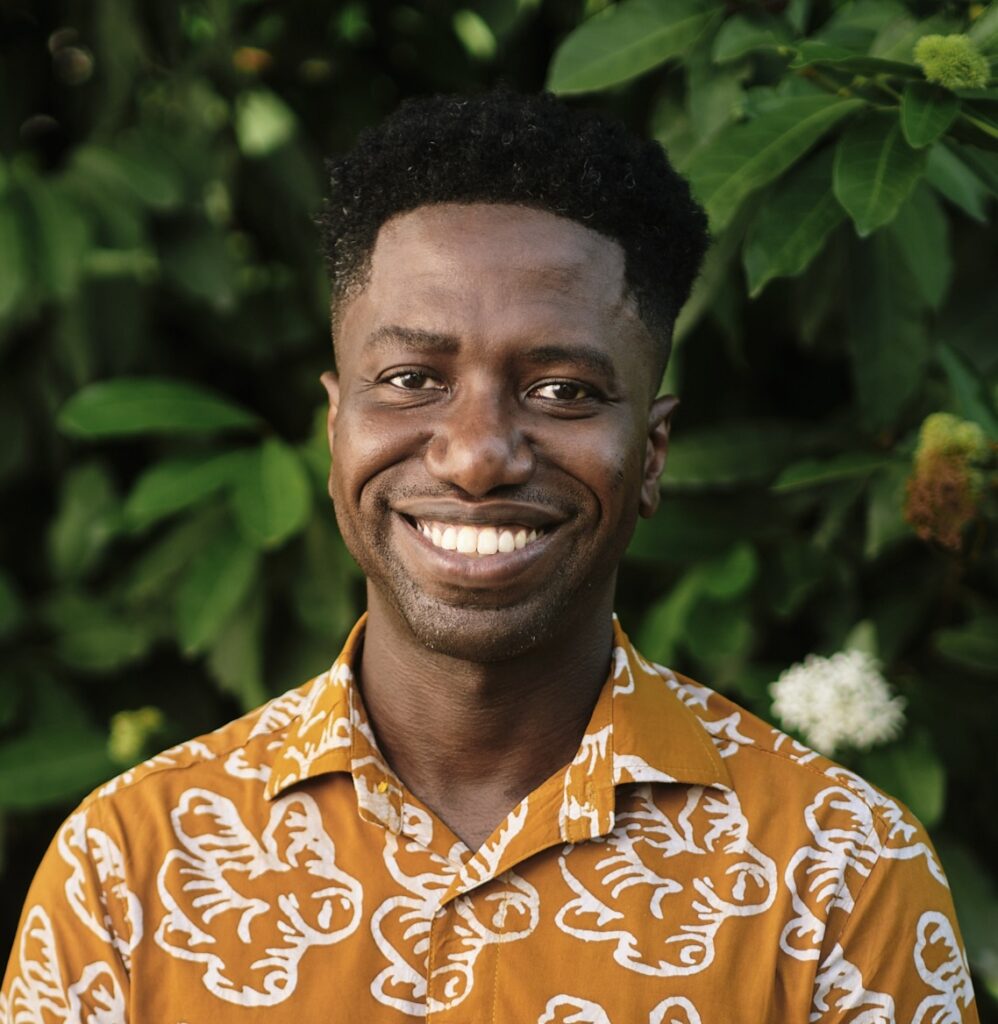
This event is free, but please register here
Abstract: West Africans were far from passive victims of European-imposed psychiatric concepts and institutions. Rather, they enchanted the British colonial asylum in Accra (contemporary Ghana) by accommodating European psychiatric practices principally as experiences within the dynamic tapestry of African ritual and political concerns over territorial control, bodily afflictions, and psychological belonging within families, communities, and states. African people mobilized practices associated by the mid-nineteenth century with healing and harming at shrines of territorial spirits to politically harness the development of psychiatric social control. That is, European psychiatry did not colonize African minds, nor did it displace African psychotherapeutic norms. It was instead built on and grafted onto a repertoire of African healing and harming practices through socio-economic, political, and ritual transactions that, in the case of coastal Ghana, unfolded over the course of centuries.
Nana Osei Quarshie is Assistant Professor in the Program in the History of Science and Medicine at Yale University, where he is also affiliated with the Department of Anthropology and the Yale School of Medicine. An anthropologist and historian by training, Quarshie examines the relationship among mental healing, political expulsions, immigration, and urban belonging in West Africa since the seventeenth century.
This event is co-hosted by the Birkbeck Centre for Interdisciplinary Research on Mental Health and the Raphael Samuel History Centre, with support from the UKRI and Wellcome Trust.
Researching Lived Experience Seminar Series: New Dates tba for 2025
Previous events:

This online event is free to attend and open to all, but please register: https://www.bbk.ac.uk/events/event/42850/reflections-on-integrating-lived-experience-into-research-about-youth-mental-health
Abtract: Agency-in-Practice are an interdisciplinary team, incorporating perspectives from lived experience, psychology, psychiatry, philosophy and linguistics. Together, they examine qualitative data (video recordings of clinical encounters, and transcripts of research interviews) to understand young people’s experiences of helpseeking for their mental health. Through this work, across two funded projects, they have been developing and refining their approach to collaborative working, in order to support young people to provide their insights as co-analysts.
In this seminar, they will reflect together on how they came to work together in this way, on what they learned as they developed their approach to co-analysis further, and on the benefits of a ‘lived experience lens’ for the analysis stage of qualitative research. They will also discuss their plans for sharing more of their insights and details of their methodology, and for developing further guidance for researchers.
Find out more about Agency-in-Practice: https://collaborativeresearch.co.uk/agency-in-practice
Previous events:
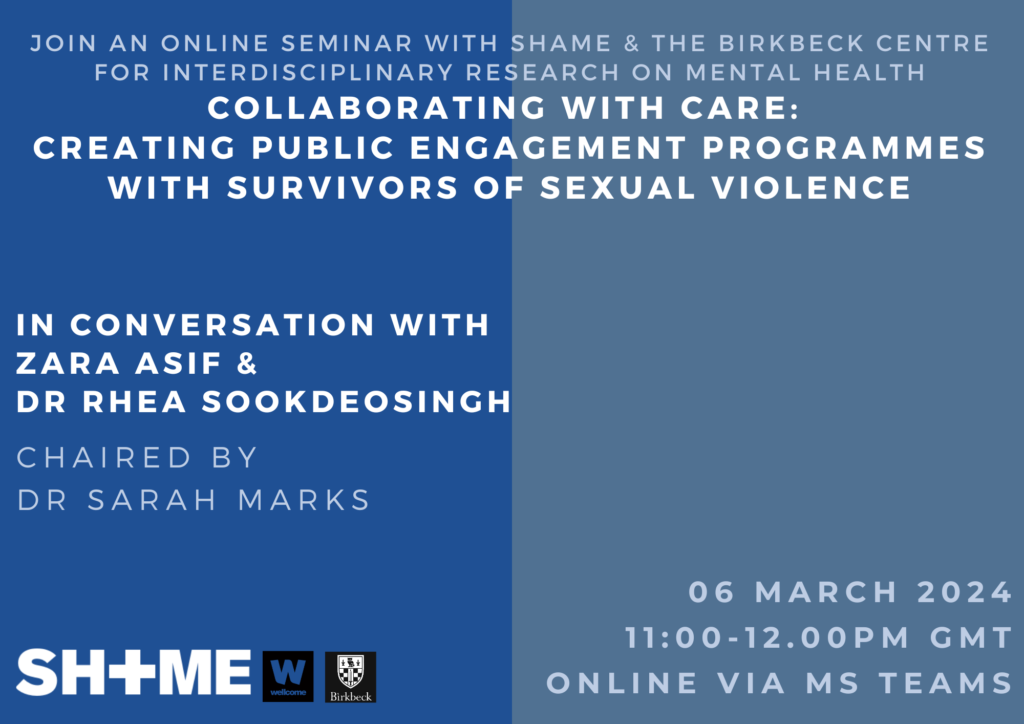
Birkbeck’s Centre for Interdisciplinary Research on Mental Health (CIRMH) and The Sexual Harms and Medical Encounters Project (SHaME) are hosting an online seminar on public engagement with lived experience research with Zara Asif and Dr Rhea Sookdeosingh, chaired by Dr Sarah Marks.
Event details:
Wednesday 06 March 2024
Online via MS Teams
11.00-12.00pm GMT
On 06 March 2024 Birkbeck Centre for Interdisciplinary Research on Mental Health (CIRMH) and The SHaME Project are hosting an online seminar about public engagement with lived experience research as part of CIRMH’s Researching Lived Experience in Mental Health Seminar Series. SHaME’s Public Engagement Lead Dr Rhea Sookdeosingh will be in conversation with Zara Asif from the ESRC Centre for Society and Mental Health at King’s College London in a discussion chaired by CIRMH Director Dr Sarah Marks.
Including people with lived experience in research and engagement projects is becoming an increasingly common practice and one which is highly encouraged by funders. Working with people with lived experience and including their voices, perspectives and expertise enriches research and makes it more responsive to the communities it impacts. But it’s not without challenges, both ethical and logistical. This is especially the case with sensitive research topics like sexual violence, where it’s critical to avoid causing further harm while also representing the complexity and nuance of the research and the breadth of people’s lived experience. CIRMH’s Director, Dr Sarah Marks will chair a conversation between Zara Asif from the Not My Shame project and the ESRC Centre for Society and Mental Health at King’s College London and Dr Rhea Sookdeosingh from The SHaME Project at Birkbeck, University of London, where we will explore how to create truly inclusive programmes, different approaches to safeguarding and ethics, and how to navigate complicated university systems.
Speakers:
Zara Asif joined the Centre for Society and Mental Health’s Marginalised Communities Programme in January 2021. Her current research focuses around global mental health and mental health policy, particularly among marginalised communities such as ethnic minorities, refugees and migrants. In addition, Zara has worked as a co-PI for the Not My Shame project, which focused on creative collaboration between researchers and artists, and emphasised on empowering survivors of violence and abuse.
Rhea Sookdeosingh is the Public Engagement Lead for The SHaME Project. She is an experienced public engagement practitioner and has previously worked in capacity-building roles at Birkbeck and the University of Oxford. Rhea works to develop and steward partnerships that drive humanities-led research and innovation, and she has an overarching interest in showcasing the social and civic value of arts and humanities research and practice. She is also an historian with interests in the intellectual, social and cultural history of medicine. Her first monograph on the history of anorexia nervosa in nineteenth-century Britain is forthcoming with Oxford University Press. Rhea is currently the co-chair of Birkbeck’s staff diversity network REACH (Race, Ethnicity & Cultural Heritage), which works to support and amplify the voices of underrepresented ethnically diverse staff across the University.
Sarah Marks is a Senior Lecturer and Director of the Birkbeck Centre for Interdisciplinary Research on Mental Health. She works across History, Qualitative Social Science Research and Policy Studies to understand mental health in its cultural and political context, predominantly in Europe and Africa. Her work is funded by UK Research and Innovation and the Wellcome Trust. As Director of Birkbeck CIRMH she is particularly interested in supporting research and conversations on methods for understanding lived experience in mental health.
Researching Lived Experience in Mental Health Seminar Series
‘Towards a soundscape of safety’: A musical representation of service user perspectives
Kiara Wickremasinghe, SOAS
4th December, 4-5.30pm, Dreyfus Room (3rd floor), 26 Russell Square (Birkbeck)
In this seminar I’ll be presenting a composition based on first-hand accounts of my service user interlocuters, on their experiences of NHS mental health services. It will musically illustrate moving from themes of incarceration towards a sense of safety offered by the Open Dialogue intervention, which is the subject of my PhD research. Open Dialogue is a social network approach and alternative way of organising psychiatric crisis care, currently being trialled in the UK and marking the largest randomised controlled trial of this 80s Finnish innovation. Alongside experiencing this 7-minute soundscape, you are invited to take part in a wider reflection on the creative process, role of collaboration and ethical considerations in relation to audio/visual outputs. Finally, as this composition formed part of a panel on ‘Lived Experience in Open Dialogue’ that I convened at a recent conference, I will draw on some audience responses and reflect on the future-making of creative outputs.
Kiara Wickremasinghe is an anthropologist and PhD candidate at SOAS, funded by the Bloomsbury Doctoral College and jointly supervised at Birkbeck, where she is a member of PhD steering group of the Centre for Interdisciplinary Research on Mental Health. She is also part of the Anthropology of Open Dialogue Research Group.
Documentary Film Screening
Wednesday 29 November 2023
6.00-9.00pm GMT – Rich Mix Arts Centre, BSL interpreted
BOOK TICKETS HERE: https://richmix.org.uk/cinema/shame-stories-of-survival/
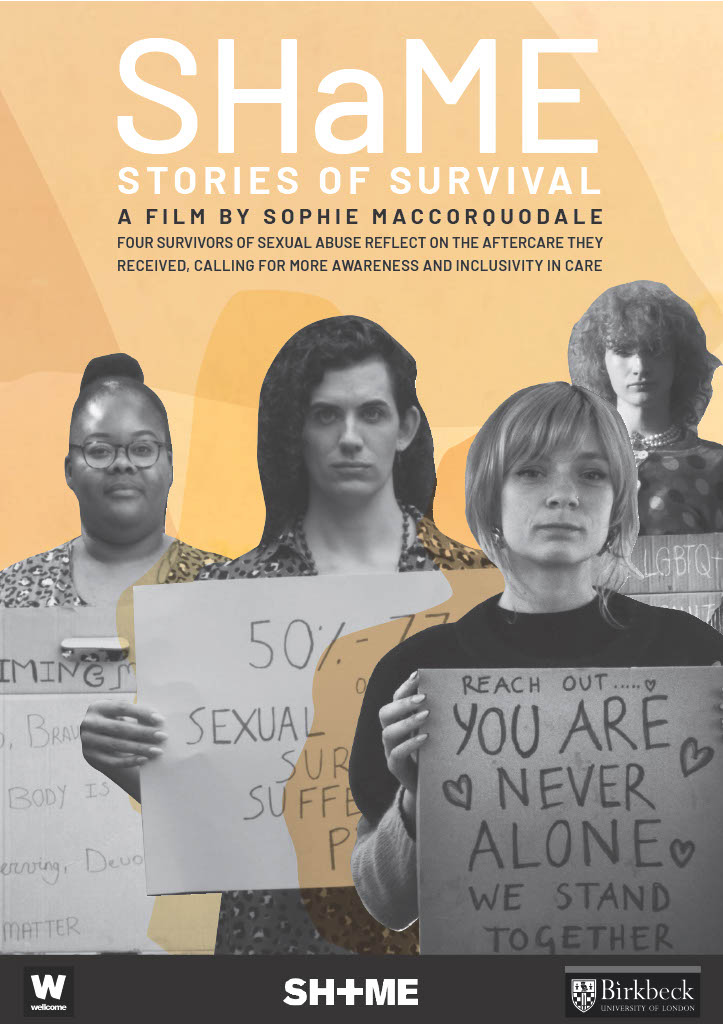
The film explores experiences of aftercare for survivors of sexual abuse. The screening will be followed by a panel discussion featuring SHaME’s Principal Investigator Professor Emerita Joanna Bourke, filmmaker Sophie MacCorquodale, survivor and contributor of music Maddy Brodrick, award-winning speaker Maisha Sumah, writer and journalist Lucia Osborne-Crowley and founder of London Trans Pride Lucia Blayke.
Taking place during the UN’s 16 Days of Activism Against Gender-based Violence, the evening will be an opportunity to celebrate the survivors’ stories, raise awareness of the links between sexual violence, medicine and psychiatry, think about what we can learn from centring survivors’ perspectives and reflect on the use of film as advocacy from the perspectives of survivors, activists and academics. The screening will be followed by a panel discussion and drinks reception.
6.30–7pm Screening
7–8pm Panel discussion in The Mix & Bar
8–9pm Drinks reception in The Mix & Bar
Audio and Video Diaries as a Participatory Method in Mental Health Research
Dr Sarah Bernays and Dr Joanna Farr in conversation
5th July, 11am-12pm BST (London) via Microsoft Teams: JOIN VIA LINK
Free and open to all, but please register due to limited space: https://www.eventbrite.co.uk/e/audio-and-video-diaries-as-a-participatory-method-in-mental-health-research-tickets-660985374047
Audio and video diaries are a burgeoning approach to understanding individuals’ lived experiences, yielding unexpected data that goes beyond what can be captured through qualitative interviews. They can also present a number of challenges, both methodologically and ethically. In this online seminar, Dr Joanna Farr and Dr Sarah Bernays will discuss their research using participatory diary methods a diverse range of contexts including the UK, Serbia and Uganda, reflecting on the potential of diary methods for qualitative mental health research. The conversation will be followed by a Q&A, and we invite participants to share their experiences of using diary methods in research.
Dr Sarah Bernays is Associate Professor of Global Health at the University of Sydney and London School of Hygiene and Tropical Medicine. She is also the Social Science lead for The Health Research Unit Zimbabwe. Her research focuses on adolescent global health using longitudinal qualitative methods within interdisciplinary research projects. She has co-authored papers on audio diary research with young people with HIV in Uganda, Zimbabwe and Serbia.
Dr Joanna Farr is Lecturer in the Department of Psychological Sciences at Birkbeck, University of London. She researches young people’s experience of mental health difficulties and emotional wellbeing, with a particular focus on using Interpretative Phenomenological Analysis (IPA), visual and longitudinal methods to access and express everyday lived experiences. She is currently leading a Wellcome-funded research project in this area in collaboration with Birkbeck’s Derek Jarman Lab.
This seminar is part of Birkbeck CIRMH’s online series on Approaches to Researching Lived Experience and Mental Health, and will be chaired by Dr Sarah Marks. The event is free and all are welcome, although registration is required due to limited capacity on MS Teams. We invite contributions to the chat on seminar guests’ perspectives on research methods, and we particularly welcome participation from international guests.
Film Screening & Q&A: Antigone (2019)

12th May 2023, 6pm Birkbeck Cinema, 43 Gordon Square
Register here
Migrating Identities: the other, my culture, myself though a psychoanalytical lens
Chair: Clea Mcenery West (Director of Birkbeck Counselling and Psychotherapy Centre)
Panel members: Andrea Sabbadini (psychoanalyst), Paul Terry (psychodynamic counsellor) and Mandy Merck (academic – film studies and feminism)
Antigone is a 16-year-old girl who came to Canada from Algeria as a child with some of her family. While she excels at school, her two brothers have turned to crime. When one ends up in jail and is threatened with deportation, she comes up with a plan to have him released, which gets her into trouble.
A modern adaptation of the Greek tragedy, in which a young woman with an indestructible love of family and justice takes on the authorities. This classic, universal struggle is primarily fought out on social media. The warm solidarity in the viral world, depicted by video-like impressions, contrasts markedly with the system’s cold rules. Antigone is a beacon of hope, who with her independent character commands respect and starts a movement in which humanity trumps fear and indifference.
This event has been created in partnership with the Centre for Interdisciplinary Research in Mental Health (CIRMH) and the Birkbeck Institute for the Moving Image (BIMI). Find out more about BIMI here.
Social Research for the Public Good: Anxiety
Hosted by Birkbeck Institute for Social Research
When: 17 May 2023, 18:15 — 20:15
Venue: Birkbeck Main Building, Malet Street
Register here

The BISR Social Research for the Public Good seminar series is intended to show the importance of social research for describing and contributing to the mitigation of inequalities. Each term we will invite a panel of social researchers to discuss the cost-of-living crisis and how their research contributes to understanding the causes and impacts of the crisis and/or to mitigating it (for example through engaging with policy makers and/or activists). This third seminar will focus on anxiety and the mental health implications of the cost-of-living crisis, and will feature contributions from Dr Sarah Marks (Director of Birkbeck Centre for Interdisciplinary Research on Mental Health), Dr Joanna Farr (Birkbeck Dept of Psychological Sciences), Dr China Mills (City, University of London), Dr Lisa Blackman (Goldsmiths), and Dr Katie Pybus (University of York).
The Material Force of Categories: Assessments, Algorithms & Infrastructures of Categorisation
Saturday, 11th of March, 10:30am-5:00pm, Birkbeck.
Limited tickets available – register at https://www.eventbrite.co.uk/e/the-material-force-of-categories-symposium-tickets-534498909627
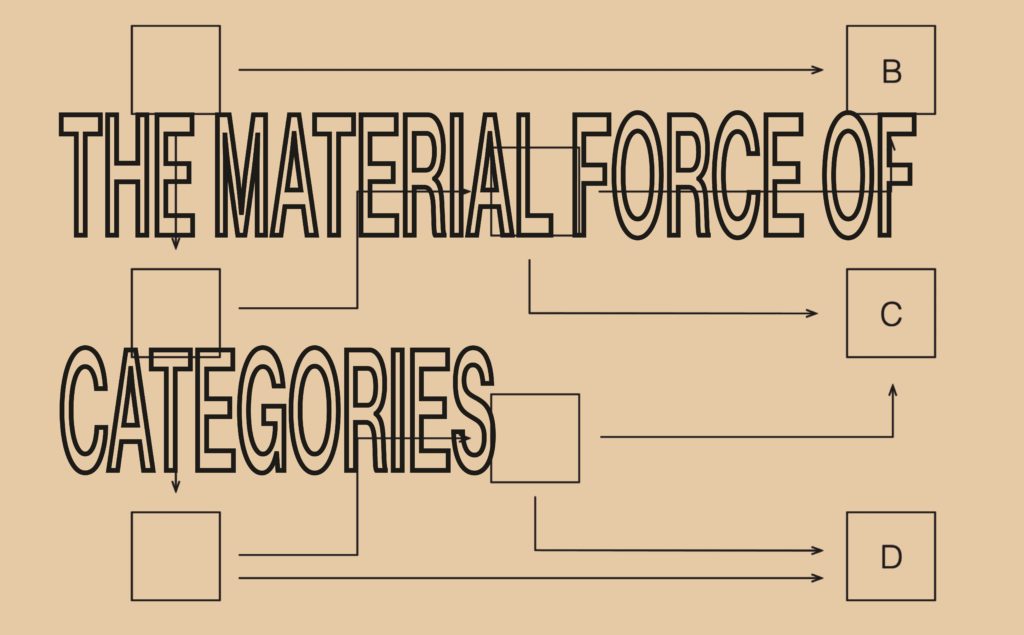
This one-day symposium looks at how assessment and categorisation can play an active role within decision-making structures. The event is interested in examining how socio-technical system produce categorisations—particularly categorisations of intelligence, risk, and the subject—in ways that can then be operationalised within broader institutional and epistemic frameworks. The symposium is interested in how such categories are produced through a range of psychosocial, statistical, and technical modes of assessment, including: psychometric and psychological testing, risk assessment tools, and machine learning.
Organised by Sasha Bergstrom-Katz and Tomas Percival to coincide with Psychoteche at the Peltz Gallery, Birkbeck.
Psychotechne: Assessment, Testing, Categorization
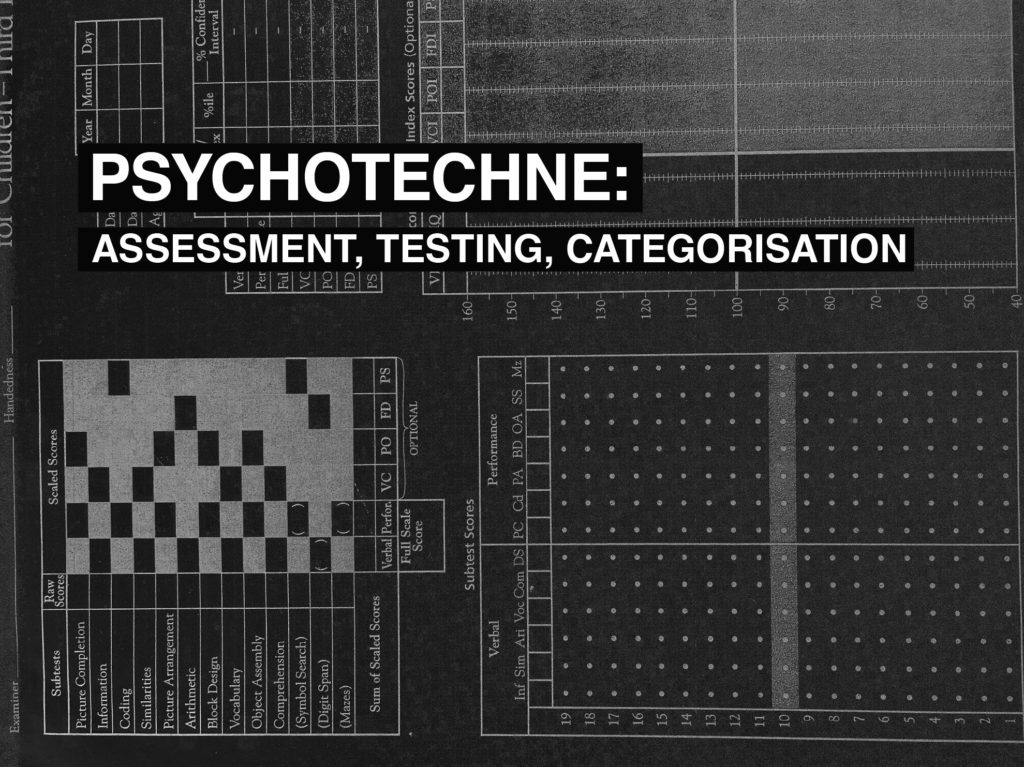
Birkbeck Peltz Gallery, Monday 20 February – Saturday 25 March 2023
Monday–Friday: 10am–8pm and Saturday 11, 18 and 25 March 12pm-5pm
Launch event: Friday 24 February – Register here
A two-person exhibition of works by Sasha Bergstrom-Katz and Tomas Percival. Each artist’s project examines how assessment, testing, and categorisation of individuals are central to decision-making within various institutions, including schools, hospitals, and prisons. Curated by Sarah Marks on behalf of Birkbeck Centre for Interdisciplinary Research on Mental Health.
For further details see https://cirmh.bbk.ac.uk/psychotechne
Innovation & Inclusion in Digital Mental Health
17th November 2022, supported by UKRI and LSHTM
Online symposium co-hosted by the Centre for Global Mental Health at LSHTM and Birkbeck Centre for Interdisciplinary Research on Mental Health
https://lshtm.zoom.us/j/92154278123
The use of digital technologies in mental health treatment is a rapidly growing and complex field, with stakeholders across healthcare, industry, and academia in both high-income and low-resource settings. While public and service-user engagement has been encouraged, this has been largely focused on brief consultations and user-testing, and questions remain around the extent to which service-users have been involved in a meaningful way, at all phases of development. This interdisciplinary symposium brings together clinicians, developers, people with lived experience and researchers in the humanities and social sciences to reflect on how the field has been shaped up to the present, and how social inclusion can be placed at the centre of digital innovations in mental health from here on.
This event will take place online from 2.30-5.15pm on 17th November, see full programme here.
Recovery, Rehabilitation and Remission in Mental Health: Historical and Contemporary Perspectives
One-day conference 3rd November 2022, supported by the UKRI & Society for Social History of Medicine
How do we measure, understand, support and regulate recovery in mental health? This conference brings together historians, anthropologists, lived experience researchers and clinicians to consider how these concepts have changed over time in a range of settings. We ask how they’ve been shaped by a range of actors including patients, befrienders, peers, psy-professionals, social workers, clergy, pharmacologists, and prison and probation staff.
This event will take place in person in the Keynes Library at Birkbeck on 3rd November. Tickets are free but registration is essential: https://www.eventbrite.co.uk/e/recovery-rehabilitation-and-remission-in-mental-health-tickets-431902079747
Image credit: Wellcome Images/Hedley Finn – Corridor, NHS Mental Health Unit
Film Screening & Q&A – Nkabom: A Little Health, A Little Prayer
12th October, 6pm at the Birkbeck Cinema. Co-hosted by Birkbeck CIRMH and the ESRC Centre for Mental Health and Society at King’s College London

In recent years Ghana has committed to improving access to mental health care and promoting human rights through partnerships between traditional and faith healers and mental health workers. ‘Nkabom: A little medicine, a little prayer’ is an ethnographic documentary filmed in 2019 in rural villages and market towns in the central belt of Ghana. The film follows the activities of mental health nurses who are creating partnerships with healers in the communities where they work with the aim of reducing harmful practices and improving the treatment of people with mental health conditions. The film shows how these partnerships develop, what makes them successful, and the challenges faced in negotiating the removal of restraints as well as accessing resources. The nurses and healers describe how they ka bom, join together, to reach the same goal of helping their patients to get well.
The film screening will be followed by a Q&A with Dr Erminia Colucci and members of the research team from the UK and Ghana.
The film is part of the Together for Mental Health visual research project in Ghana and Indonesia funded by UKRI Economic and Social Research Council Global Challenges Research Fund. DIRECTOR: Erminia Colucci RESEARCH TEAM: Ursula Read (University of Warwick), Lily Kpobi (University of Ghana), Roberta Selormey (University of Ghana), Erminia Colucci (University of Middlesex) EDITORS: Anthony Comber-Badu and Nadia Astari
For more information please visit https://movie-ment.org/together4mentalhealth/
Trailer: https://www.youtube.com/watch?v=8OK3_2Pv7-k&t=6s
Art and Psychotherapy: A Critical Workshop
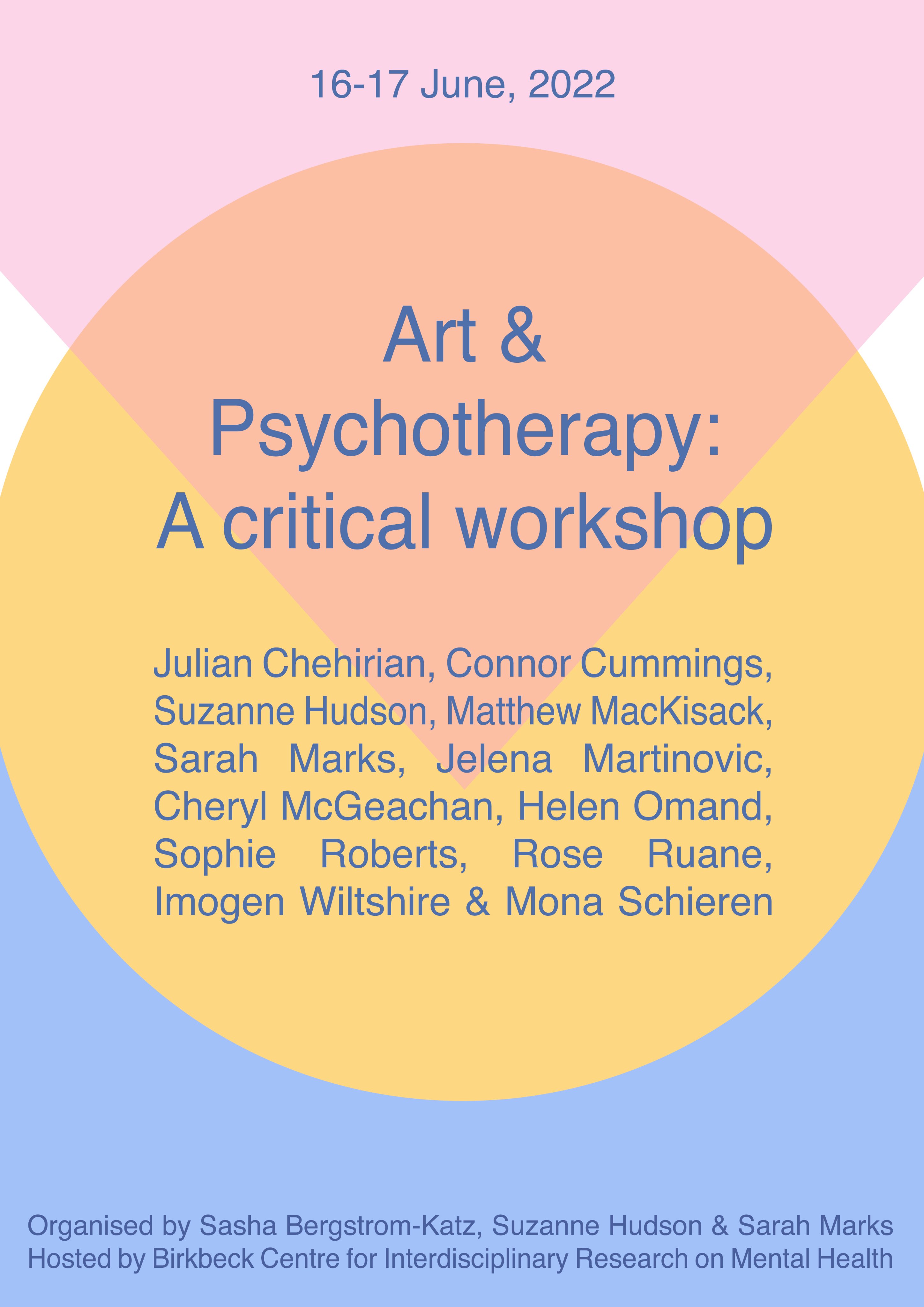
This workshop focuses on the relationship between art and art therapy, examining the roles of artist, service-user artist, amateur artist, outsider artist and non-artist. Though the question ‘what is art’ is rote, the utilisation of art as therapeutic endeavour, championed by therapeutic communities and supported by institutions, tugs at the boundaries of meaning of art via its maker and the maker’s ‘location’. Though many so-called outsider artists are not service users or, more specifically, art therapy patients, their positioning as both artists and not-artists gives a pertinent example of the slipperiness of the category of artist – someone on the ‘inside’ of an ‘art world’ and yet in close proximity to ‘insanity’ and outsider-ness. This interdisciplinary workshop brings together scholars from arts-based practice, art history, history of the human sciences, and psychosocial studies to reflect collectively on the following research questions:
What kinds of subjects does the field of art therapy produce?
What is produced in art therapy?
How does the field of art therapy envision its relationship to contemporary art and artistic practice?
In what way is ‘the artist’ (and more specifically, different categorisations of artists) a particular kind of subject for psychology?
How can art therapy produce wellness when the figure of the artist is so commonly modelled as ‘unwell’?
This event is planned to take place in person at Birkbeck, depending on the pandemic situation. More details and registration will be forthcoming once this has been confirmed.
Image credit: Sasha Bergstrom-Katz
Coffee with Clinicians: Dr Claire Hilton, Historian in Residence, Royal College of Psychiatrists
29th April 2022 3.30-5pm (online), co-hosted by Birkbeck CIRMH and Department of History & Philosophy of Science, University of Cambridge
A retired surgeon told a medical historian that he’d taken up history of medicine. ‘Good for you,’ replied the historian, ‘Now that I am off the academic treadmill, I think I’ll do a bit of brain surgery.’ That probably sums up the relationship between clinicians and historians, but can one person do both properly?To explore this, Claire will reflect on her own experiences during her career as both a practising NHS psychiatrist and a historian. Themes will include:psychiatry, humanities and history and the art (rather than the science) of clinical practice; becoming a doctor, specialising in old age psychiatry, then moving into history and the role of ‘historian in residence’ at the Royal College of Psychiatrists.
Dr Hilton’s publications include Civilian Lunatic Asylums in the First World War: A Study of Austerity on London’s Fringe (2020), and Improving Psychiatric Care for Older People: Barbara Rob’s Campaign, 1965-1975 (2017)
The talk will begin at 3.30pm, and will be followed by an informal Q&A. While the meeting officially ends at 4.30, we have Zoom available until 5pm should our chat continue for a little longer.The Zoom meeting will be open from 3.00pm onwards so we can gather for a pre-seminar chat and a virtual coffee. Link to follow shortly.
The Distance Cure: A History of Teletherapy
Hannah Zeavin in Conversation with Stephen Frosh, 10th March 2022 4-5.15pm

Therapy has long understood itself as taking place in a room, with two (or more) people engaged in person-to-person conversation. And yet, starting with Freud’s treatments by mail, psychotherapy has operated through multiple communication technologies and media. These have included advice columns, radio broadcasts, crisis hotlines, video, personal computers, and mobile phones; the therapists (broadly defined) can be professional or untrained, strangers or chatbots. In The Distance Cure, Hannah Zeavin proposes a reconfiguration of the traditional therapeutic dyad of therapist and patient as a triad: therapist, patient, and communication technology.
Hannah Zeavin is a Lecturer in the Departments of English and History at the University of California, Berkeley, and is affiliated with the University of California, Berkeley, Center for Science, Technology, Medicine, and Society. She is a Visiting Fellow at Columbia University’s Center for Social Difference and Editorial Associate at The Journal of the American Psychoanalytic Association.
Stephen Frosh is a clinical psychologist and a Professor of Psychology at Birkbeck, University of London. He has helped to establish the new discipline of psychosocial studies, especially through considering the psychological, social and cultural applications of psychoanalytic theory. He has published widely on issues of gender and identity and their relationship to developments in social life, and more recently, to questions of otherness and racist hate. His latest book, Those Who Come After: Postmemory, Acknowledgement and Forgiveness (Palgrave Macmillan, 2019) explores the legacies of violence and suffering, especially in relation to questions of witnessing and forgiveness.
Open Dialogue in an Inner London NHS Mental Health Service: An Anthropological Investigation
Hybrid Seminar with Dr Ruth Kloocke (Consultant Psychiatrist, Barnet Enfield and Haringey Mental Health NHS Trust) and Kiara Wickremasinghe (PhD Candidate in Social Anthropology, SOAS University of London)
29th October 3.30-4.30pm
Details:
We represent a collaborative research team of anthropologists and clinicians conducting an Anthropological Study of Peer-Supported Open Dialogue (APOD). ‘Open Dialogue’ is a Finnish innovation that adopts a person-centred and social network approach to delivering psychiatric crisis care. Our ESRC-funded study runs parallel to the ODDESSI randomised controlled trial which will assess the clinical- and cost-effectiveness of implementing Open Dialogue within the NHS. While the ODDESSI trial will tell us whether on average people in crisis receiving Open Dialogue do better than those receiving treatment-as-usual care, it does not reveal a wider range of contextual factors such as why, how or for whom Open Dialogue works or does not; this is what our ethnography hopes to shed light on. Our talk will explore the relationship between Open Dialogue and anthropology and reflect on the methodological, epistemological and ethical issues that arise when we occupy dual roles as practitioners and researchers.
Organised by Birkbeck CIRMH in partnership with the Department of History and Philosophy of Science, University of Cambridge
Join via zoom: https://us06web.zoom.us/j/87085701560
Dangerous Liaisons: Mental Health, Qu’ranic Healing, and the Meeting of Cultures
Seminar with Prof Werdie van Staden (Nelson Mandela Professor of Philosophy & Psychiatry, Pretoria Medical School) and Dr Mohammed Aboulleil Rashed (Department of Philosophy, Birkbeck, University of London)
5th July 2021, 6-7.30pm
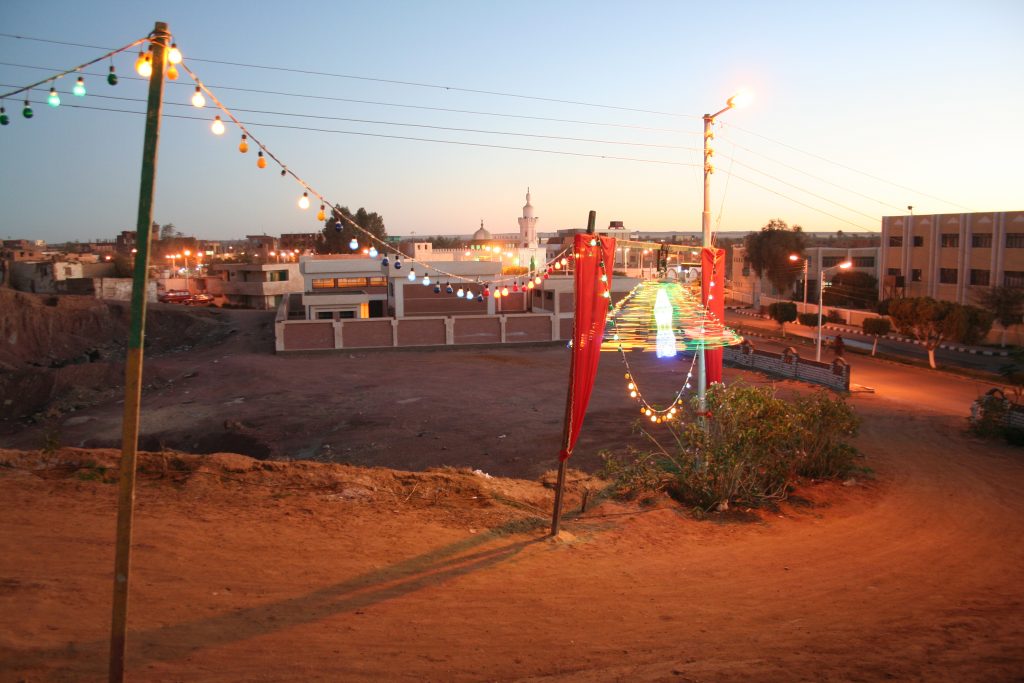
What happens when diverse worldviews come together in a healing context? In this talk Prof Werdie van Staden (Nelson Mandela Professor of Philosophy and Psychiatry, Pretoria Medical School, South Africa) and Dr Mohammed Rashed (Department of Philosophy, Birkbeck, University of London) present the case study of a Qur’anic healer from the Dakhla Oasis of Egypt. They will highlight his dual attempts to preserve traditional healing practices while seeking to modernise them in line with his understanding of scientific and medical procedures. The results are innovative yet, in this case, highly unpredictable and idiosyncratic practices. The talk will reflect on the significance of these observations for campaigns to introduce mental health services in communities such as the Dakhla Oasis. While cooperation with local healers is necessary, care must be taken in understanding the values they are keen to promote, and the cultural influences on their thought and practice. Only then can cooperation between traditional healers and mental health services lead innovation in a positive direction.
Register for this free event here.
Image credit: Dr Mohammed Aboulleil Rashed
Global Mental Health and Decolonization
Seminar with Dr China Mills (City, University of London) and Dr Harry Yi-Jui Wu (National Cheng Kung University, Taiwan)
9th June, 11am-12.30pm
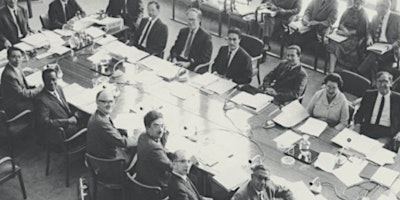
This seminar will examine how the universality of mental health has been constructed and negotiated, within the World Health Organisation and in the Movement for Global Mental Health. The speakers will consider how Global Mental Health stories its own history – frequently overlooking that psychiatric classification has long been global, especially in its quest for international comparison of ‘mental illness’; and how it engages with critiques of its coloniality – often by framing colonialism as racist denial of care located in the past, rather than something that wraps around the present. Click here for further information.
Inaugural Lecture, Professor Leslie Topp: ‘The Spaces We Are Reduced To’
7th June 2021, 6-7pm
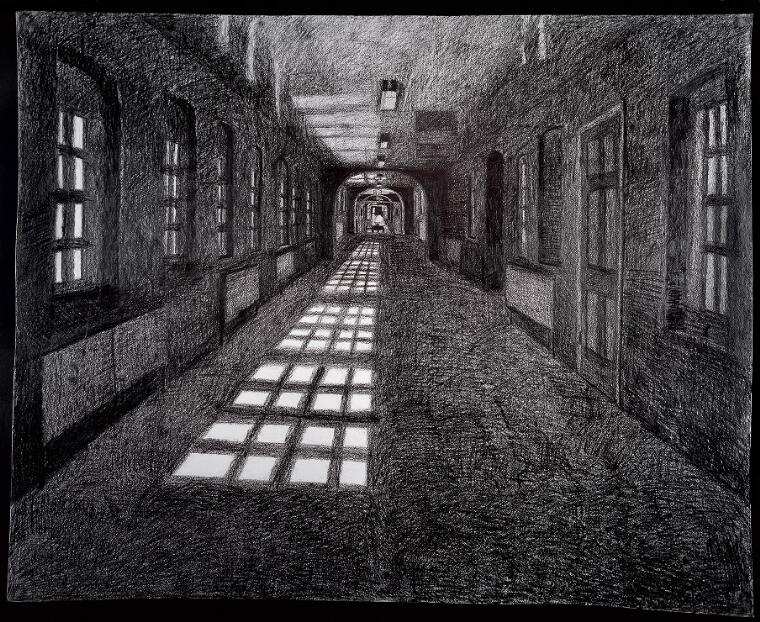
Historic spaces of incarceration – the prisons and asylums of the long nineteenth century – have spatial reduction and monotony designed in. Built to control moral infection and manage poor and unruly populations, they removed not only liberty, but spatial self-determination of the most intimate kind, enforcing mass isolation for some and mass togetherness for others. In this lecture Professor Topp will explore what the pandemic has taught her about the phenomenon of spatial reduction in nineteenth-century carceral institutions – its centrality and yet strange invisibility in the scholarship. She will also propose that these institutions have lessons to teach us about our very recent spatial experiences. Click here for further information.
Image credit: ‘High Royds Hospital, Menston, Ilkley, Yorkshire: a corridor’ by Paul Digby, Wellcome Collection
Interdisciplinary Symposium on Sexual Violence, Medicine & Psychiatry
11th-12th May 2021

Birkbeck’s Wellcome Trust-funded SHaME project is hosting online international, interdisciplinary academic symposium to explore the role of medicine, psychiatry and affiliated professions in debates about sexual violence. Confirmed keynotes include Sameena Mulla, Marquette University (Wisconsin, USA), Gethin Rees, Newcastle University (UK), Amie O’Shea, Deakin University (Australia) and Patsie Frawley, Waikato University (NZ).
Click here for further information.
Researching Lived Experience in the History of Mental Health
Workshop, 27th-28th April 2021
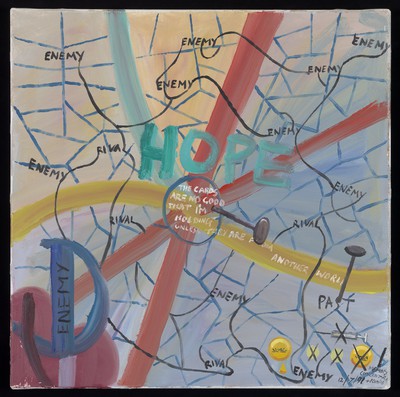
This workshop aims to bring together colleagues who are working with sources in relation to lived experience in mental health, to open up conversations about methodology, theory and positionality; and to consider the consequences for historical work of basing our histories on ideas of experience. We will also discuss how historians engage with the wider and politically contentious field of mental health studies. We adopt a broad understanding of history to include the recent past, and also welcome dialogue with other disciplinary traditions (e.g. anthropology, phenomenology) which have had more long-standing engagement with these questions.
Registration for this event is now closed. For information about future events on this theme please contact Dr Sarah Marks s.marks@bbk.ac.uk
Image credit: ’16th Self Portrait’ by Bryan Charnley (1949-1991)
Symposium: Old Age Care in Times of Crisis, Past and Present
8th-9th April 2021
co-organised by Birkbeck, University of London and London School of Hygiene and Tropical Medicine

Rarely in recent history has a global event such as the current pandemic brought care for older people into sharper focus. Now, as in the past, many struggle physically and/or mentally, due to a range of bio-psycho-social factors. The provision of care for older people has involved a host of actors from international agencies and NGOs, national and local governments, charities, campaigners, medical and care professionals, and, of course, families and community networks. What has happened to these endeavours, and to old age care as a whole, in times of crisis? Does crisis bring change – for better or worse – in the practices, ideas, cultures, laws, and structures surrounding care for older people?
In a two-day, cross-disciplinary symposium, we will consider how social care, medical treatment, and the rights of older people have been affected by major events such as war, pandemic, plague, famine, economic depression and austerity, industrialisation, political extremism, enslavement, colonialism, or environmental damage/collapse.
Reflections on old age care in times of crisis are welcome from any discipline across the humanities and social sciences at the symposium, which will be held over two afternoons BST on 8 and 9 April 2021. For more information, please go to Oldagecareintimesofcrisis.blogspot.com
Image: Wellcome Collection. Alzheimer’s disease, artwork. Credit: Florence Winterflood. Attribution 4.0 International (CC BY 4.0)